In the vast and ever-evolving field of healthcare, clear communication is crucial. Yet, it seems as if medical jargon has taken on a life of its own, often leaving patients and even healthcare professionals bewildered. This is where the invaluable role of a medical writer comes into play. With their expertise and skills, these knowledgeable individuals decode complex medical concepts and translate them into understandable language for a diverse audience. In this article, we will explore the importance of medical writers in simplifying intricate healthcare information, the challenges they face, and the future of this vital profession.
Understanding the Role of Medical Writers
In the fast-paced world of healthcare, accurate and effective communication can make all the difference. Medical writers play a significant role in achieving this goal. These professionals possess a unique skill set that allows them to bridge the gap between medical terminology and layman’s language, ensuring that crucial healthcare information reaches its intended audience. While their specific responsibilities may vary, their overall objective remains clear: to demystify medical jargon and make it accessible to all.
One of the key reasons why clear communication is so important in healthcare is that it enables patients to actively participate in their own care. When medical information is conveyed in a language that individuals can understand, it empowers them to ask relevant questions, follow treatment plans, and actively engage in their own well-being. This level of engagement can lead to better health outcomes and improved patient satisfaction.
The Importance of Clear Communication in Healthcare
Clear communication is the cornerstone of effective healthcare delivery. When medical information is conveyed in a language that individuals can understand, it empowers patients to take an active role in their own health. It enables them to make informed decisions, ask relevant questions, and follow treatment plans. Likewise, clear communication among healthcare professionals ensures accurate diagnoses, efficient treatments, and better patient outcomes. Medical writers are pivotal in facilitating this essential communication by simplifying complex healthcare information.
Imagine a scenario where a patient receives a diagnosis but can’t comprehend the medical jargon used by the healthcare provider. This lack of understanding can lead to confusion, anxiety, and even non-compliance with treatment plans. However, with the help of medical writers, this information can be translated into plain language that the patient can easily grasp. By breaking down complex concepts into digestible pieces, medical writers empower patients to make informed decisions about their health.
Moreover, clear communication among healthcare professionals is equally crucial. In a multidisciplinary healthcare team, effective communication ensures that everyone is on the same page, leading to accurate diagnoses and efficient treatment plans. Medical writers collaborate closely with healthcare professionals to ensure that their work is accurate, comprehensive, and easily understood by all team members.
Skills and Qualifications of Medical Writers
Medical writers possess diverse skills and qualifications that enable them to fulfill their vital roles. Firstly, they have a deep understanding of medical terminology and scientific concepts. Coupled with their excellent research skills, they can stay abreast of the latest developments in the field. This knowledge allows them to accurately interpret and translate complex medical information into layman’s terms.
Additionally, medical writers are skilled in the art of writing and editing. They have the ability to present information in a concise yet comprehensive manner, ensuring that the intended message is effectively conveyed. Their writing skills are honed through years of practice and experience, allowing them to distill complex medical concepts into easily understandable language.
Effective collaboration and communication skills are also essential for medical writers. They work closely with healthcare professionals, including doctors, researchers, and pharmacists, to gather the necessary information and ensure accuracy in their work. By maintaining open lines of communication, medical writers can clarify any ambiguities and ensure that the final product meets the needs of both the healthcare professionals and the intended audience.
In conclusion, medical writers are indispensable in the world of healthcare. Their ability to bridge the gap between medical terminology and layman’s language is crucial in ensuring that vital healthcare information is accessible to all. Through their research, writing, and collaboration skills, medical writers play a vital role in simplifying complex medical concepts and empowering patients to take control of their health.
The Complexity of Medical Jargon
Medical jargon is notorious for causing confusion and misunderstanding, even among healthcare professionals. It is a language filled with complex terms and acronyms that seem to have no end. To simplify this intricate lingo, medical writers must dive deep into the world of medical terminology and identify common terms that are frequently misunderstood by patients and non-medical audiences.
Commonly Misunderstood Medical Terms
One of the challenges that medical writers face is identifying the most commonly misunderstood medical terms. Words like “myocardial infarction” instead of “heart attack” or “carcinoma” instead of “cancer” can leave patients feeling overwhelmed and uncertain about their condition. By pinpointing these terms and providing clear layman’s explanations, medical writers help ease patient anxiety and ensure they comprehend their diagnosis and treatment options.
The Impact of Confusing Jargon on Patient Care
Confusing medical jargon not only affects patient understanding but also profoundly impacts overall healthcare outcomes. Misunderstandings can lead to incorrect self-diagnoses, non-compliance with treatment plans, and unnecessary anxiety. Furthermore, healthcare professionals may experience challenges effectively communicating with patients when their explanations are filled with complex terminology. By simplifying medical jargon, medical writers contribute to improved patient care and better health outcomes.
Techniques for Simplifying Medical Information
With their knowledge and expertise, medical writers employ various techniques to simplify complex medical information. These techniques ensure that even the most intricate healthcare concepts are accessible to non-medical audiences.
Translating Medical Terms into Layman’s Language
One of the primary ways medical writers simplify medical information is by translating complex terms into easily understandable language. They replace technical jargon with simple, everyday words that resonate with a diverse audience. By doing so, medical writers enable patients and non-medical professionals to grasp the underlying concepts without feeling overwhelmed or confused.
The Art of Writing for Non-Medical Audiences
Writing for non-medical audiences requires a delicate balance between accuracy and comprehensibility. Medical writers must distill complex information into digestible portions, using clear and concise language. This involves breaking down intricate concepts into smaller, more manageable pieces, using relatable examples or analogies, and avoiding unnecessary technical details. By employing these techniques, medical writers captivate their readers and facilitate a deeper understanding of healthcare topics.
The Challenges of Simplifying Complex Healthcare Information
While medical writers play a crucial role in simplifying healthcare information, they face several challenges along the way. These challenges revolve around finding the balance between accuracy and understandability while overcoming barriers to health literacy.
Balancing Accuracy and Understandability
Medical writers must strike a fine balance between accuracy and understandability in their work. While simplifying complex concepts, they must ensure that the essence of the information remains intact. Omitting crucial details or oversimplifying can lead to misunderstandings or incomplete knowledge. Medical writers carefully navigate this challenge, ensuring that their audience can grasp the main points without sacrificing accuracy.
Overcoming Barriers to Health Literacy
Health literacy, or the ability to understand and apply healthcare information, is a significant barrier to effective communication. Many individuals struggle to comprehend medical jargon and have limited access to reliable healthcare information. Medical writers aim to bridge this gap by presenting information in a clear and concise manner, using plain language and visual aids whenever possible. By breaking down barriers in health literacy, medical writers empower individuals to make informed decisions about their health and well-being.
The Future of Medical Writing and Health Communication
As technology continues to advance, so too does the field of medical writing. Medical writers are at the forefront of leveraging technological advancements to improve health communication and public health understanding.
Technological Advances in Medical Writing
Advances in technology have revolutionized the way medical writers communicate complex healthcare information. Interactive websites, mobile applications, and digital platforms have created new opportunities for engaging and educating diverse audiences. Medical writers collaborate with digital developers and designers to create user-friendly interfaces and interactive content that make healthcare information readily accessible to all.
The Role of Medical Writers in Improving Public Health Understanding
Medical writers have a vital role to play in improving public health understanding. By simplifying complex information and making it accessible, they empower individuals to proactively manage their health and actively participate in their healthcare journey. Effective health communication facilitated by medical writers leads to more informed decisions, healthier lifestyles, and improved public health outcomes.
Improve Healthcare Outcomes with Clear Content
Medical writers are unsung heroes in the healthcare industry. Their expertise in simplifying and translating complex medical jargon into understandable language ensures effective communication between healthcare professionals and patients. By breaking down barriers caused by confusing terminology, medical writers contribute to improved health literacy and better healthcare outcomes. As technology advances, medical writers’ role in health communication will only become more critical. Their ability to adapt and leverage technological innovations will empower individuals to take control of their health and well-being.




